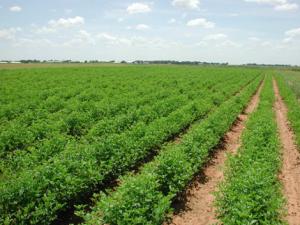Thanks to its diversified landscape, agro-ecology, and fertile soils with vast arable land (74.3 million hectares), the Ethiopian agricultural sector has much to offer: from coffee to livestock passing through oilseeds and flowers. In order to take full advantage of this diversity, important steps were made by the Ethiopian Government in the last two decades to accelerate growth and transformation in this sector, which remains a predominant in the Ethiopian economy. In fact, it is accounting for nearly 42.9% of the gross domestic product (GDP), about 90% of foreign currency earnings and 82% of employment. The transformation of the agriculture of other sectors of the economy. Recognizing that large capital investments are needed to exploit Ethiopia’s resources, incentives are being provided to encourage foreign investment (including joint ventures and marketing arrangements).
To accelerate the pace of the programme, the Agriculture Transformation Agency (ATA) was launched in 2011 with the aim of disseminating sector is therefore central to drive the economy transition to a manufacturing based economy and to reach middle-income country status by 2025.
Launched two decades ago, the Agricultural Development Led Industrialization (ADLI) strategy put agriculture at the forefront of Ethiopia’s development process and provided an overarching plan for economic development on the basis of agricultural transformation. The goal is to increase productivity leading to higher employment, incomes, and investable surplus for the development improved planting, fertilizing and harvesting techniques and ensure that these new practices are adopted by smallholder farmers. The ATA is scaling up these best practices through a network of agriculture extension workers and innovative ways of communication, such as an interactive voice response and SMS system providing smallholder farmers free with information on cereal, horticulture, and pulse/oil seed crops, as well as a wide range of agriculture-related activities and innovations. Ethiopia is the origin and largest producer of coffee in Africa and the fifth worldwide, with a reputation for producing some of the world’s finest organic coffees. The soil of the forest floor is enriched from falling leaves, making fertilizers unnecessary. Most regions of Ethiopia are furthermore suitable for the production of a wide range of tropical and sub- tropical fruits, vegetables and flowers, thanks to the country’s favorable climate, abundant labor, fertile land and water resources. Cut flower and vegetable production are fast growing export businesses, and Ethiopia is a center of diversity for a variety of flowering plants. While the contribution of the livestock industry to the country’s total exports is currently low compared to its potential, this sector also holds great promise as a source of export diversification for the future. The export of finished leather and leather products (such as leather garments, footwear, gloves, bags and other leather articles) has been increasing over the last years.
Moreover, some other parts of the sector represent substantial opportunities for new investment: plantation crops (such as tea and tobacco); production and processing of oil crops and cotton; fish farming; forestry and forest by-products. Ethiopia is also the home of the gluten-free cereal teff, which has been the main ingredient of Ethiopian food for thousands of years. Thanks to its rich nutritious characteristics, there is a global growing demand for teff.
Finally, Ethiopia has tremendous and potential for investment in agro-processing. While the government encourages the export of unprocessed agricultural products, it has placed incentives for investment and export of processed products, which involve and stimulate the growth of the agro- processing sector. Through the development of agro-processing, Ethiopia’s agricultural sector can achieve swift and sustained long-term economic development.
Report written by the Embassy of Ethiopia in Brussels




